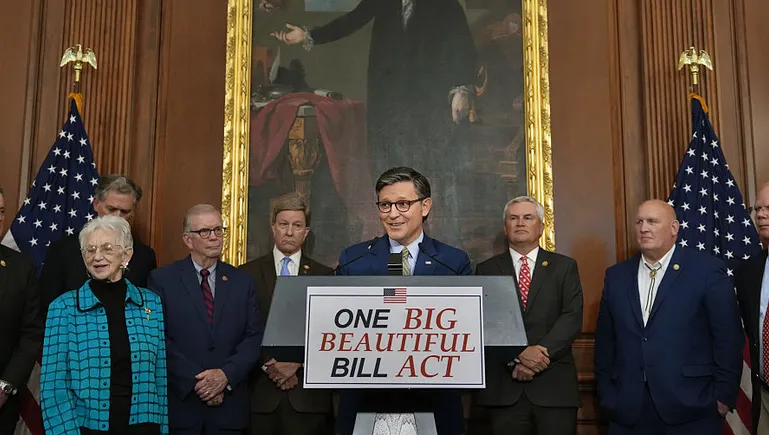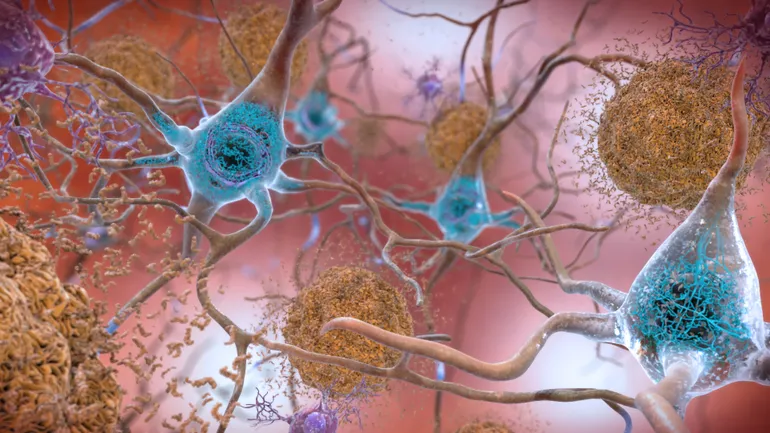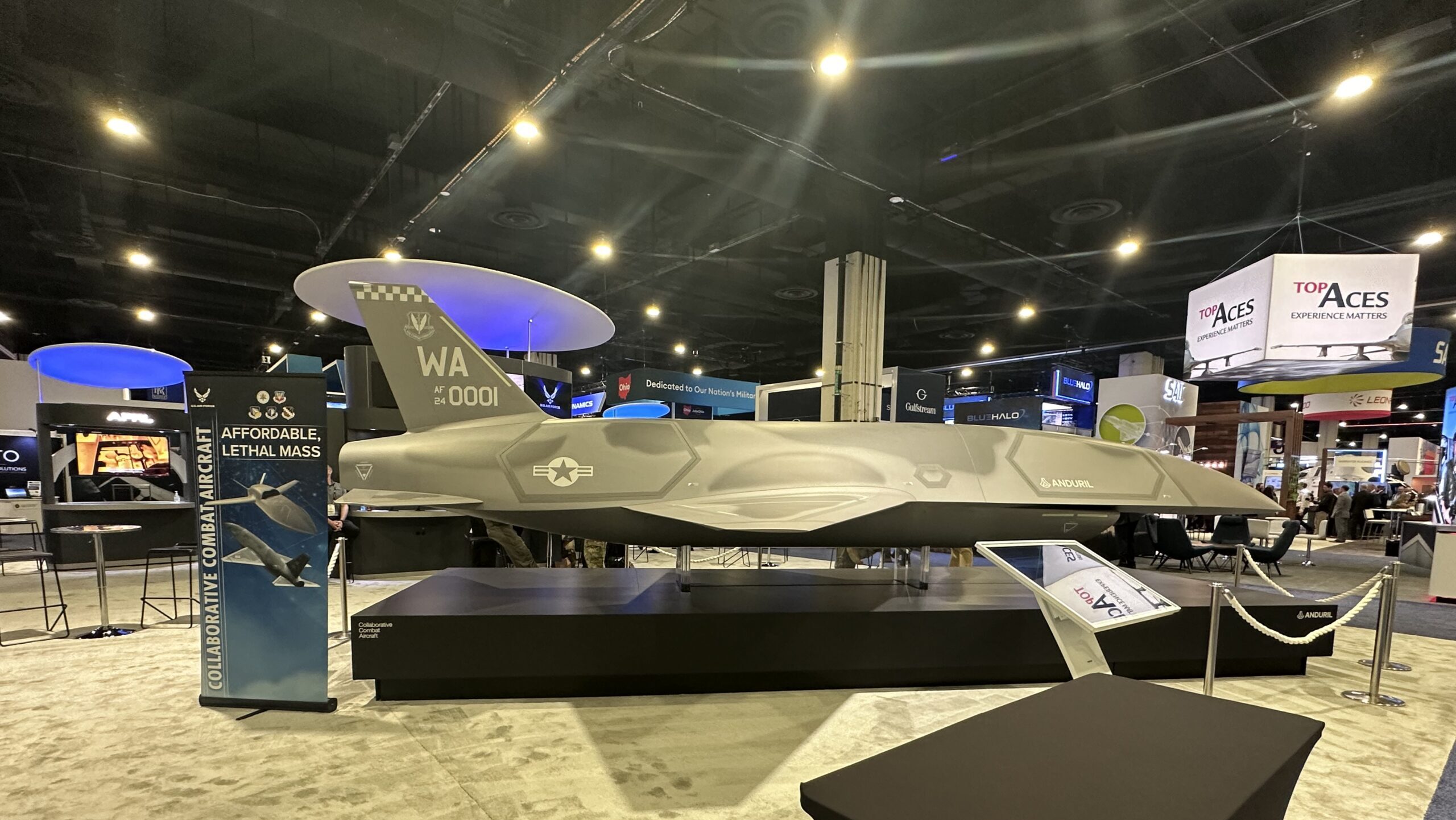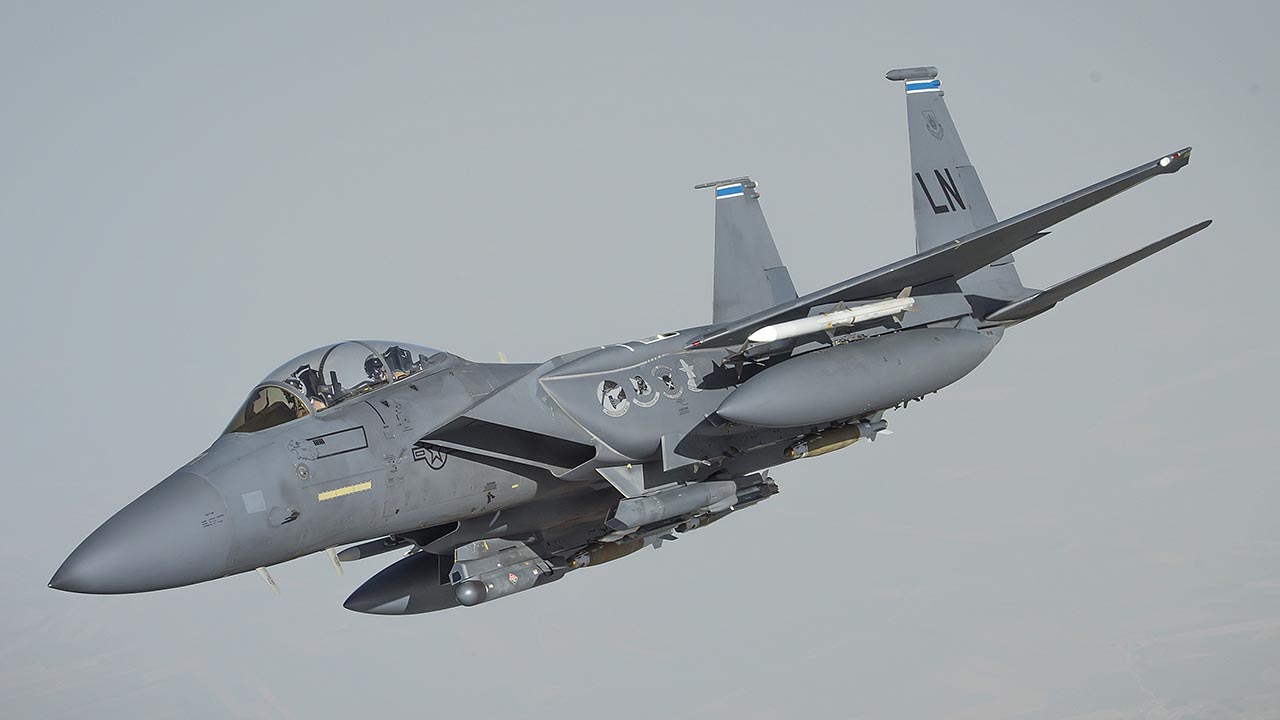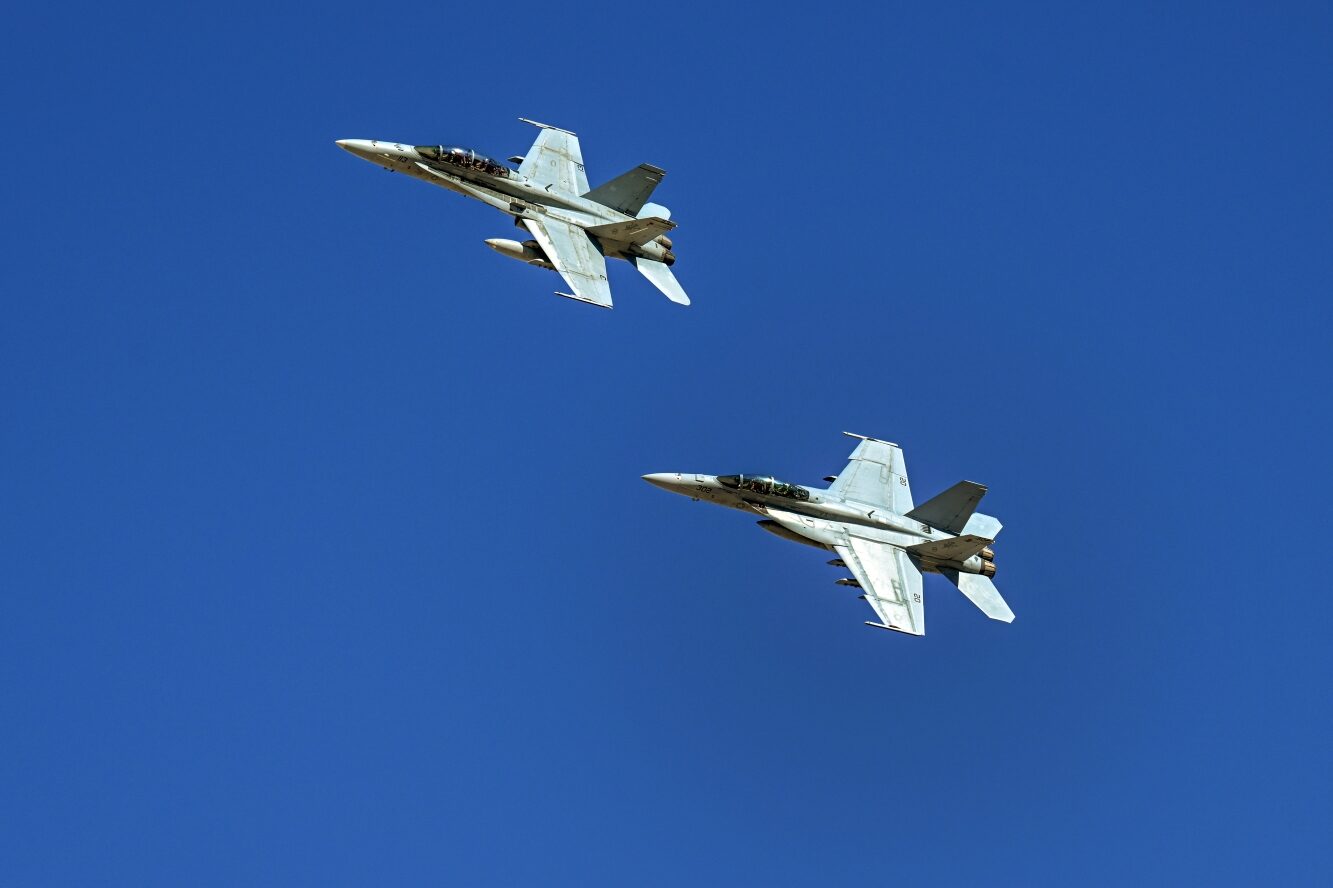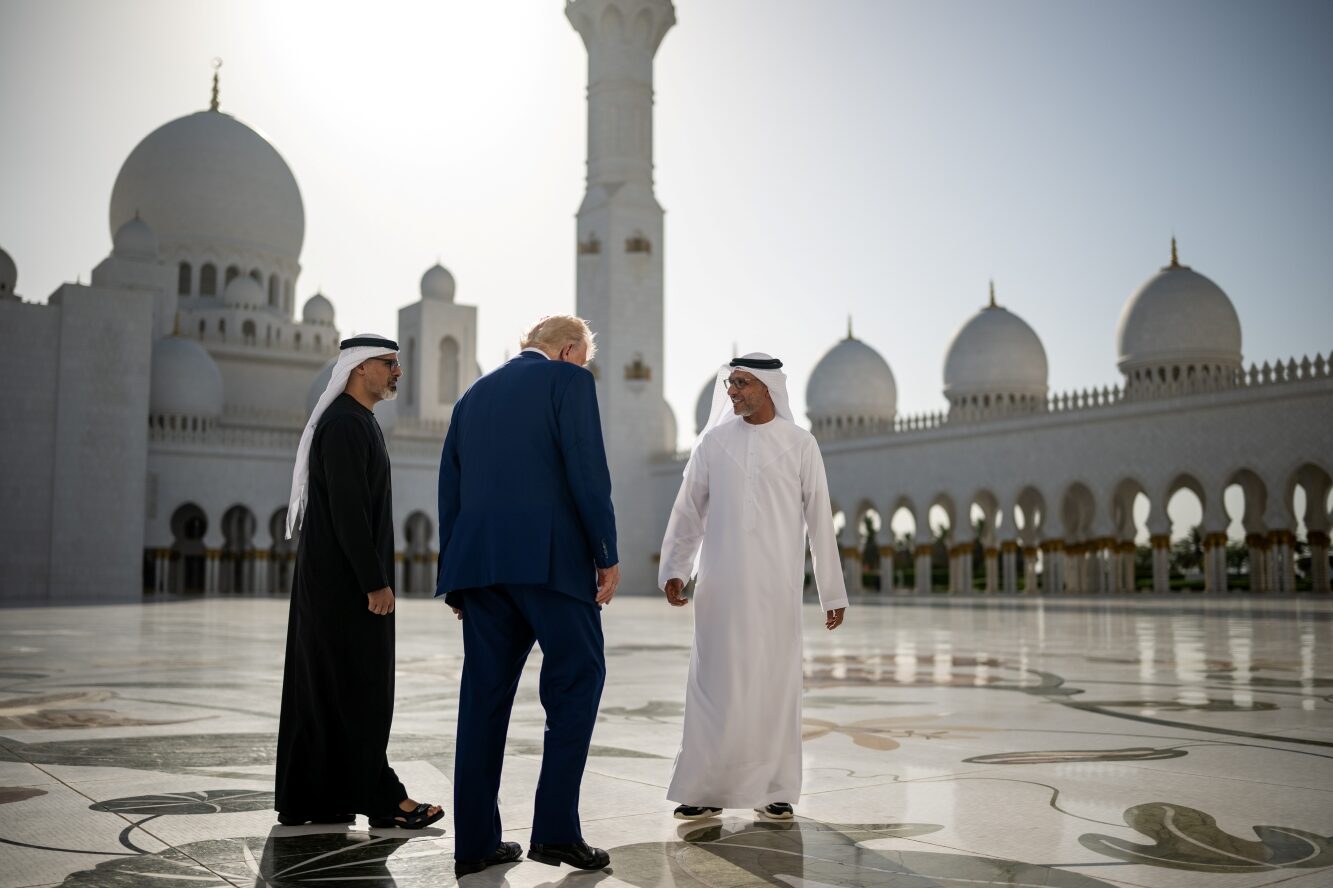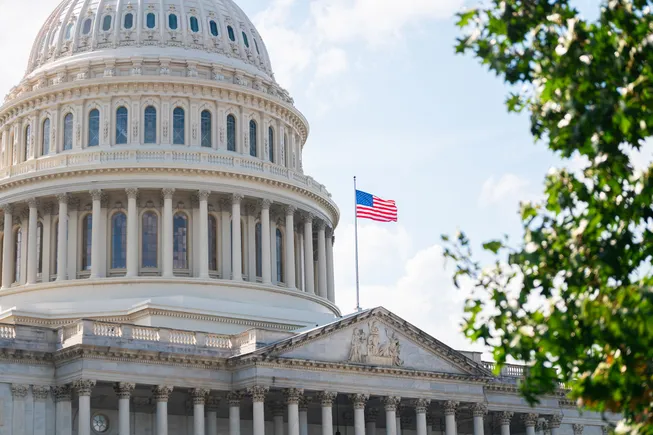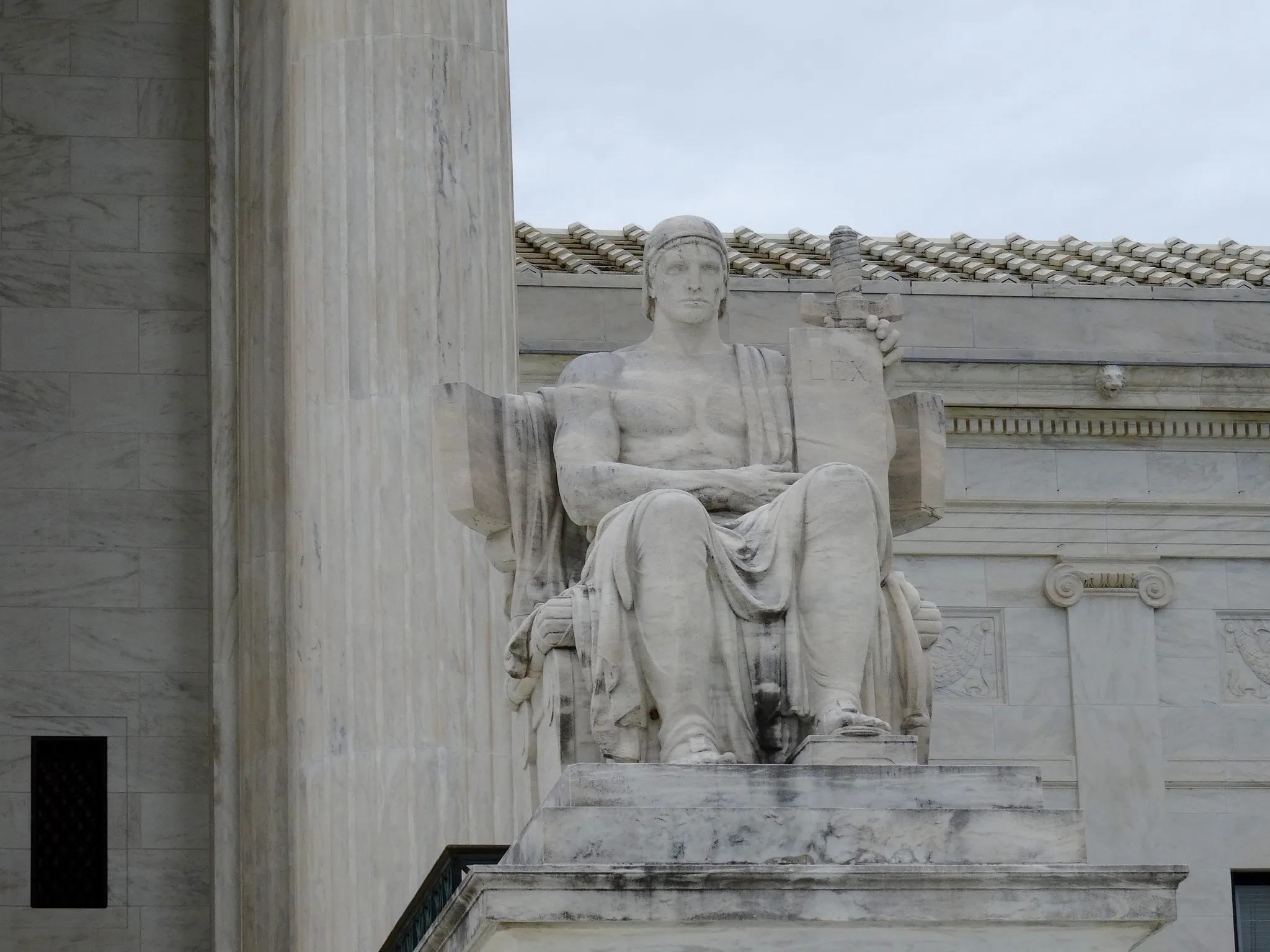House narrowly passes reconciliation bill with $150B for defense
Funding contained in the bill is required for the Trump administration to hit $1 trillion in defense spending in fiscal 2026.


WASHINGTON, DC – MAY 20: U.S. President Donald Trump speaks alongside Secretary of Defense Pete Hegseth in the Oval Office at the White House on May 20, 2025 in Washington, DC. President Trump announced his plans for the “Golden Dome,” a national ballistic and cruise missile defense system. (Photo by Chip Somodevilla/Getty Images)
WASHINGTON — The House passed a massive GOP-backed funding package today, paving the way for Congress to add $150 billion in defense spending aimed at boosting major Trump administration priorities like Golden Dome.
The so-called “one big, beautiful bill,” approved in a 215-214-1 vote, uses a special process known as “budget reconciliation” to filibuster-proof the legislation, allowing a party that controls both chambers to push funding through without needing to win over the minority.
The measure now moves to the Senate, where the benefit of the reconciliation process really kicks in: Republicans will be able to pass the bill with a simple majority instead of having to invoke cloture, a Senate-only procedure that requires 60 votes to limit debate on a bill and proceed to a vote.
The Trump administration hopes to push $113 billion of the $150 billion pot into Pentagon coffers in fiscal year 2026 — resulting in a $1 trillion total payout for defense spending that also allows fiscal hawks to keep the defense base budget completely flat. The remaining funding would be used throughout other years of President Donald Trump’s second term.
Administration officials previously told Breaking Defense that boosting discretionary defense funding past the $893 billion mark agreed to in FY25 would risk Democrats seeking an equivalent increase for non-defense spending, while GOP authorizers and appropriators have lamented using reconciliation funds as a stand-in for real defense budget growth.
Defense spending has at no point been a controversial aspect of the reconciliation process, but other topics threatened to steer the legislation off course, from earlier disagreements about whether to combine all funding additions and cuts into a single bill, to debates about Medicaid that ultimately saw Trump himself step in.
House passage has long been seen as the biggest hill to climb, given the razor thin Republican majority and the resulting sway of several hardline fiscal conservatives who have pressed for deeper spending cuts.
House Republicans passed the bill after more than 24 straight hours of grueling debate. The House Rules Committee began consideration of the bill at 1:00 a.m. yesterday morning, with lawmakers submitting more than 500 amendments for debate on the floor.
Those included some defense-oriented measures from Democrats, such as an amendment that would prohibit funding from being used to turn a Boeing 747 gifted from the Qatari royal family to the Defense Department earlier today into a new Air Force One plane, as well as other language limiting funds from being executed until Pete Hegseth is no longer serving as defense secretary. None of the defense-related amendments made it out of the Rules Committee for debate.
The defense portion of the reconciliation bill is predominantly earmarked for big ticket weapons programs with shipbuilding, Golden Dome and munitions production making up about half of the $150 billion pot.
Trump on Tuesday touted the $24.7 billion investment for Golden Dome made through the reconciliation bill as a downpayment on the system’s eventual $175 billion cost.
The bill also adds $33.7 billion for shipbuilding, including a Virginia-class submarine, two Arleigh Burke destroyers, industrial base investments, and $4.6 billion for unmanned surface ships and underwater vehicles. Other major pots of funding include $20.4 billion for munitions production, $12.9 billion for nuclear deterrence, $7.2 billion for air superiority and $13.5 billion meant to put technologies from defense startups and other nontraditional companies into production.
Read more about the defense portion of the bill here.
“The One Big, Beautiful Bill provides long overdue resources to modernize our military, revitalize the defense industrial base, and improve the quality of life for our servicemembers,” said House Armed Services Committee Chairman Mike Rogers, R-Ala. “I’m looking forward to sending this to the President’s desk as soon as possible.”
The top Democrat on the Senate Armed Services Committee, Sen. Jack Reed of Rhode Island, criticized the bill during a roundtable with reporters last week, saying it essentially hands over a “slush fund for the DoD to do what they want to do” rather than having to abide by strict congressional stipulations.
During a Tuesday hearing, SASC Chairman Sen. Roger Wicker, R-Miss., acknowledged that “much of the funding of the defense reconciliation bill will be unspecific because of House and Senate rules, and would technically be at the discretion of the Department of Defense.”
He then asked Air Force and Space Force leaders present at the hearing if they would comply with congressional direction on how to spend the money. Air Force Secretary Troy Meink, Air Force Chief of Staff Gen. David Allvin and Chief of Space Operations Gen. Chance Saltzman responded in the affirmative.




































































